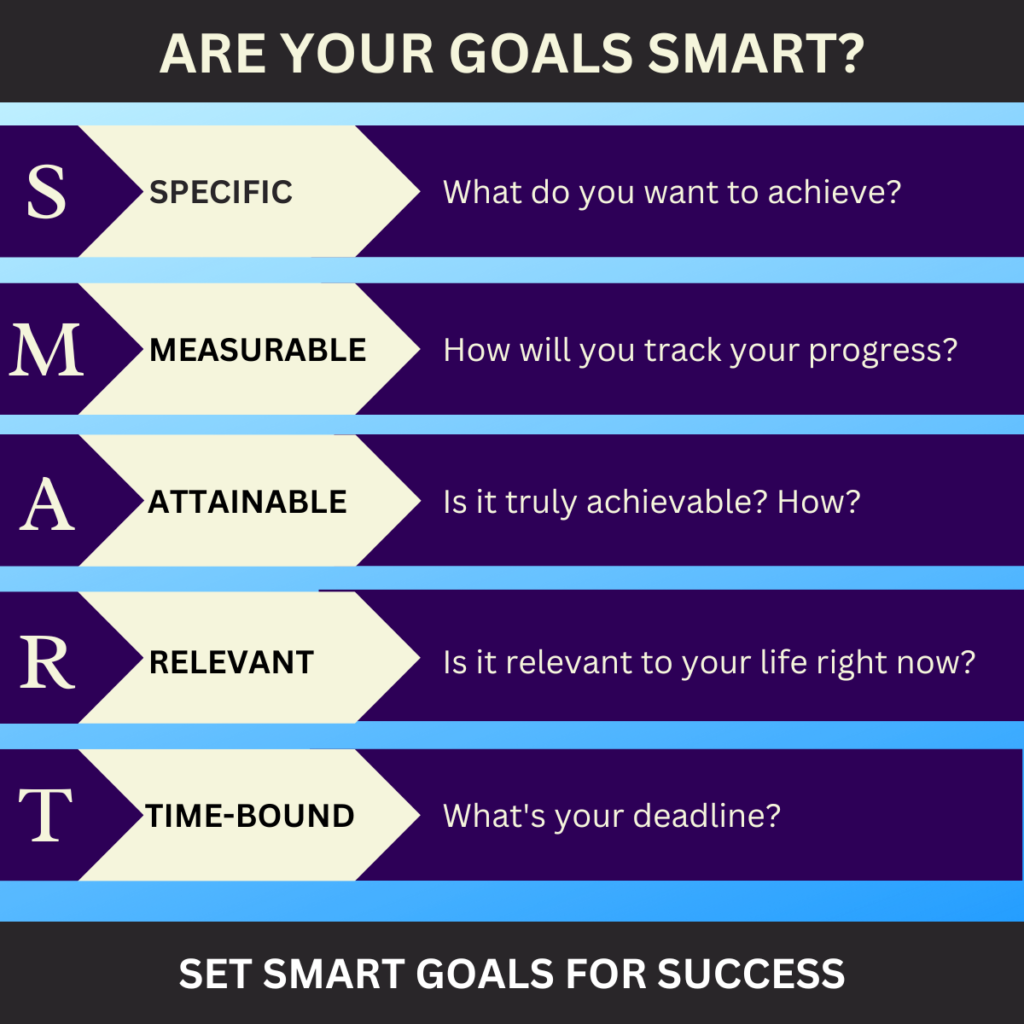Setting goals is an essential part of personal and professional development. However, merely setting goals isn’t enough. To achieve your goals, you must ensure that they are SMART: Specific, Measurable, Attainable, Relevant, and Time-bound.
SMART goals are designed to help you achieve success in a structured and efficient manner. Today, we’ll discuss the five components of SMART goals and how you can use them to set and achieve your goals.

S = Specific
The first step to setting a SMART goal is to be specific. Instead of setting a vague goal, such as “improve my finances,” be specific about what you want to achieve. For example, “increase my savings by 10% in the next six months.”
Being specific helps you to focus on what you want to achieve and avoid confusion about what constitutes success. It also helps to identify the resources needed to achieve your goal.
M =Measurable:
The second component of SMART goals is measurability. You should be able to measure progress toward your goal so that you can track your success. For example, if your goal is to lose weight, progress can be measured by tracking your weight loss or body fat percentage.
Measuring progress also helps you to identify areas where you may need to adjust your strategy or put in more effort.
A =Attainable:
Your goals should be challenging yet attainable. Setting goals that are too difficult to achieve will lead to frustration and demotivation. Conversely, setting goals that are too easy to achieve may not provide the necessary motivation to accomplish them.
To ensure your goals are attainable, consider your skills, resources, and other factors that may affect your ability to achieve your goal.
R =Relevant:
Your goals should be relevant to your long-term objectives. Setting goals that are not relevant to your overall goals can be a waste of time and effort. Before setting a goal, ensure that it aligns with your long-term objectives.
T =Time-bound:
Finally, your goals should be time-bound. Setting a deadline provides a sense of urgency and helps you to focus on achieving your goal within a specific timeframe. Without a deadline, you may find yourself procrastinating or losing motivation.
Setting SMART goals is an effective way to achieve your personal and professional objectives. By making your goals Specific, Measurable, Attainable, Relevant, and Time-bound, you can create a roadmap to success that keeps you motivated and focused on your long-term goals. So, next time you’re setting a goal, remember to make it SMART!
